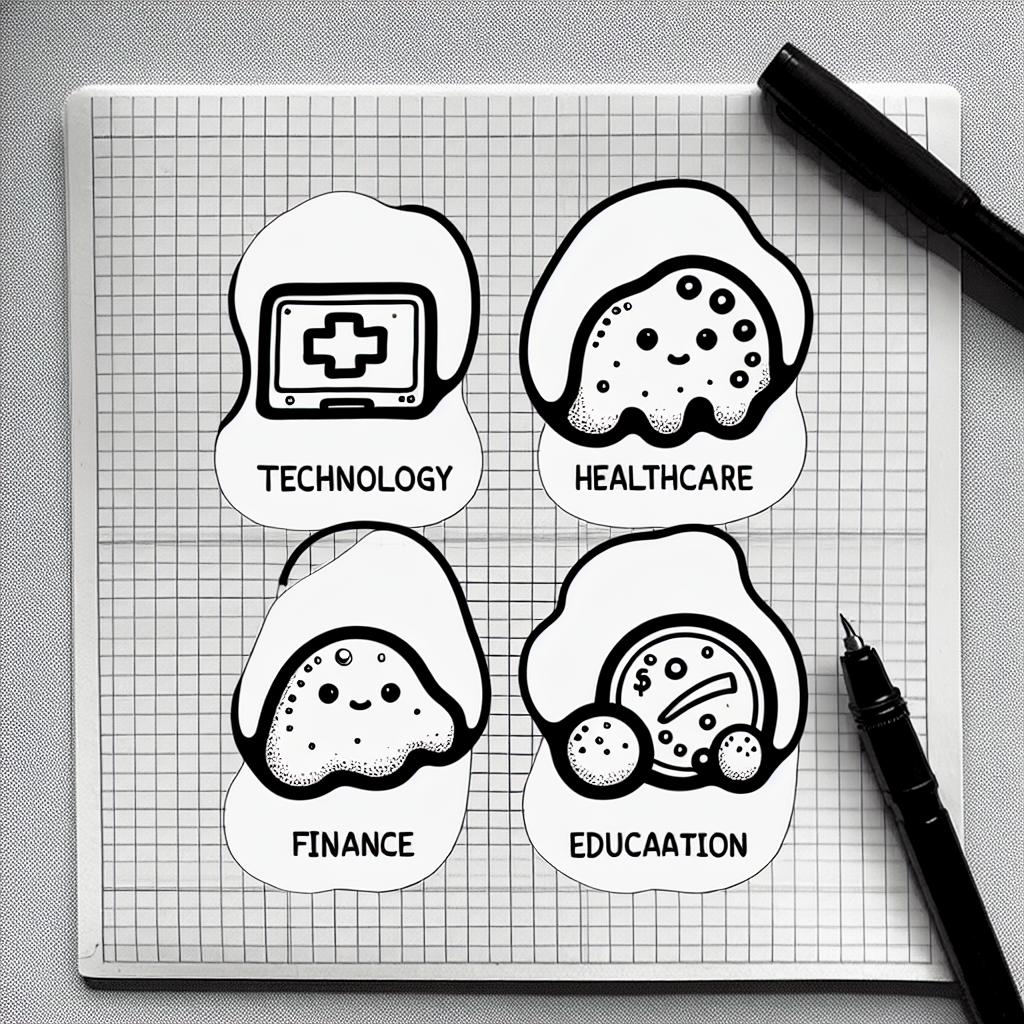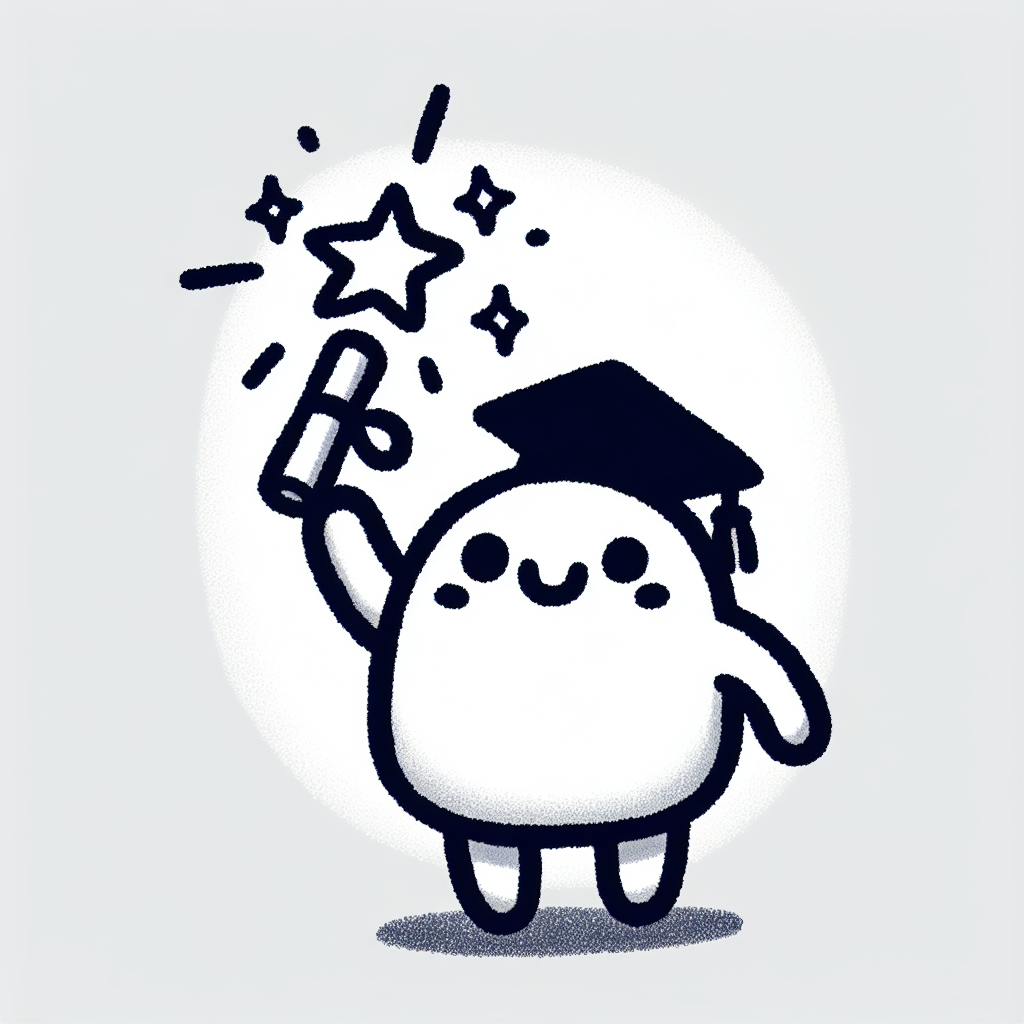Getting a job before graduation is a strategic move that sets the stage for career success. This guide explores the employment landscape for students and recent graduates, offers actionable strategies, and integrates key labor market data to help students transition from college to career seamlessly.
📊 Understanding the Employment Landscape
The Value of a College Degree in the Job Market
Getting a job before graduation is strongly influenced by educational attainment. In 2023, 88% of 25- to 34-year-olds with a bachelor’s degree or higher were employed, compared to just 60% of those without a high school diploma. This data highlights the significant advantage that a college degree offers in the job market. 👉 Source
Employment Trends for Recent Graduates
For students focused on getting a job before graduation, understanding post-graduation employment trends is key. As of October 2024, 69.6% of individuals aged 20–29 who completed a bachelor's degree between January and October were employed. This figure reflects the solid demand for recent graduates in the workforce. 👉 Source
Working While in School
Pursuing employment during college can increase the chances of getting a job before graduation. In October 2023, 44.3% of college students aged 16–24 were employed while enrolled in school. Working while studying can build relevant experience and professional connections. 👉 Source
Early Workforce Entry
For those entering the labor force earlier, the data shows that 66.4% of recent high school graduates not enrolled in college were part of the labor force as of October 2024. While this group may start working sooner, the long-term benefits of higher education still favor getting a job before graduation through a college pathway. 👉 Source
Future Job Market Outlook
Planning ahead is crucial for getting a job before graduation. Between 2024 and 2034, more than 2.37 million job openings are projected for roles that require a bachelor’s degree. This forecast underscores the value of timely graduation and early job preparation. 👉 Source

Why You Should Aim to Get a Job Before Graduation
Advantages of Early Employment
Getting a job before graduation offers several practical benefits. First, it provides financial independence and can reduce the need for student loans or help pay them off earlier. This early income allows students to manage personal expenses and gain budgeting experience.
Second, working while still in school equips students with real-world experience and helps them develop practical skills. These experiences can be directly applied in future roles, making academic knowledge more relevant and useful.
Third, early employment offers a competitive advantage in the job market. Employers often look for candidates with prior work experience, even for entry-level roles. Students who already have job experience upon graduating are likely to stand out among their peers.
Finally, having a job before graduating can boost confidence and provide clarity in choosing a long-term career path. It helps students learn what they enjoy and where they excel, leading to more informed career decisions.
Risks of Waiting Until After Graduation
Waiting until after graduation to look for a job can come with drawbacks. One major risk is missing out on valuable networking opportunities that arise from internships, part-time roles, or campus recruitment events.
Another issue is the increased competition. After graduation, students enter the job market alongside thousands of other new graduates. Those without prior experience may find it harder to secure a desirable position.
Additionally, not securing a job soon after graduation can result in employment gaps. These gaps can raise questions for future employers and make a candidate appear less proactive in their career planning.
In conclusion, getting a job before graduation can significantly enhance a student's financial stability, employability, and long-term career direction.

🛠️ Strategies to Secure a Job Before Graduation
1. Start Early
Getting a job before graduation requires early action. Begin your job search at least 6–9 months before your expected graduation date. This buffer allows time to explore different opportunities, submit applications, and go through interview processes. Research industries and roles that align with your major and career goals to target your search effectively.
2. Leverage Campus Resources
Take advantage of the support available through your college or university. The career services office typically offers mock interviews, resume reviews, and job fairs that connect students with employers. Faculty members and academic advisors can provide referrals and mentorship based on their industry connections. Additionally, use campus job boards and tap into alumni networks to uncover hidden opportunities.
3. Build a Strong Resume and Online Presence
A tailored resume is essential when applying for jobs. Customize it to highlight relevant skills and experience for each role. Maintain a professional LinkedIn profile that reflects your achievements and aspirations. If you're in a creative or tech field, consider building an online portfolio to showcase your work and stand out to recruiters.
4. Gain Experience While Studying
Employers value practical experience. Internships, whether paid or unpaid, provide hands-on learning and often lead to full-time offers. Part-time jobs and co-op programs also offer relevant experience and can demonstrate your work ethic. Volunteering and leadership roles in student organizations show initiative and help develop transferable skills.
5. Network Strategically
Networking is key to getting a job before graduation. Attend campus career fairs and industry panels to meet potential employers. Conduct informational interviews with professionals to gain insights and build relationships. Joining professional associations related to your field can also expand your network and expose you to job leads.
6. Prepare for the Hiring Process
Preparation is crucial for success in the hiring process. Practice answering behavioral and technical interview questions. Be ready to articulate your experiences and goals clearly. Also, understand the recruitment timelines for your target industries—for example, finance roles often recruit in the fall, while tech companies may have rolling applications.

🧠 Skills and Qualities Employers Value Most
When it comes to getting a job before graduation, employers prioritize a combination of soft skills and technical competencies. Understanding what hiring managers are looking for can help students tailor their resumes and interview responses more effectively.
In-Demand Soft Skills
Communication is one of the most sought-after soft skills. Employers look for candidates who can clearly express ideas, write professionally, and listen actively. Whether it's writing emails or participating in meetings, effective communication is key.
Critical thinking allows students to analyze problems, evaluate solutions, and make informed decisions. Employers value this skill because it demonstrates an ability to handle complex situations independently.
Adaptability is essential in fast-changing work environments. Students who can quickly learn new tools or adjust to shifting priorities show they can thrive even when things don’t go as planned.
Teamwork is crucial in almost every industry. Employers want new hires who can collaborate, share responsibilities, and contribute to group success.
Technical and Job-Specific Skills
Employers also look for technical abilities relevant to the job. Proficiency in relevant software or tools, such as Microsoft Excel, Adobe Creative Suite, or programming languages like Python, can set a candidate apart.
Data literacy and analytical skills are increasingly important, even in non-technical roles. The ability to interpret data and draw insights shows employers that a student can contribute to decision-making processes.
Finally, having industry certifications—such as CompTIA for IT roles or HubSpot for marketing—demonstrates initiative and validated knowledge. These credentials can make a student more competitive in a crowded job market.
Mastering these skills and presenting them effectively can significantly improve the chances of getting a job before graduation.

Navigating the Job Market by Industry
When it comes to getting a job before graduation, understanding how different industries operate can make a significant difference. Some fields have a high demand for entry-level talent, while others are known for strong internship-to-full-time conversion rates.
High-Demand Fields for Entry-Level Roles
Technology and IT: The tech sector consistently seeks out new talent, especially in areas like software development, data analysis, and cybersecurity. Many companies actively recruit from college campuses and offer training programs for recent graduates.
Healthcare and Life Sciences: With the growing need for healthcare services and innovation in life sciences, roles such as lab technicians, clinical research assistants, and health information specialists are in high demand. Certifications and research experience can further improve job prospects.
Finance and Consulting: Firms in these industries often look for analytical thinkers and problem-solvers. Entry-level roles in investment banking, auditing, and business analysis are common, and many employers conduct early recruiting during students’ junior or senior years.
Education and Non-Profits: Schools, educational nonprofits, and social service organizations frequently hire graduates for teaching, outreach, and administrative roles. These sectors value passion for service and strong communication skills.
Industries with Strong Internship-to-Full-Time Pipelines
Engineering: Engineering firms often use internships as a key part of their hiring strategy. Internships in civil, mechanical, electrical, and software engineering frequently turn into full-time offers.
Marketing and Advertising: Agencies and in-house marketing departments rely heavily on internship programs to assess candidate fit. Students who intern in roles like content creation, market research, or digital strategy often transition into permanent positions.
Government and Public Service: Federal, state, and local agencies offer structured internship programs with clear pathways to full-time roles. These opportunities are ideal for students interested in policy, administration, or public affairs.
By targeting industries that align with both demand and internship conversion, students improve their chances of getting a job before graduation.

Realistic Expectations and Next Steps
Accepting Entry-Level Roles
When it comes to getting a job before graduation, it's important to approach your first role with realistic expectations. Entry-level positions are often stepping stones, not endpoints. Rather than focusing solely on job titles or starting salaries, concentrate on what the role offers in terms of growth and learning. Your first job should serve as a launching pad that helps you build essential skills, understand workplace dynamics, and identify long-term career interests.
Continuing Education and Upskilling
To stay competitive while getting a job before graduation, consider supplementing your degree with ongoing education. Certifications, micro-credentials, and even graduate programs can enhance your qualifications and open doors to more advanced opportunities. Additionally, staying current with industry trends through webinars, podcasts, and reputable publications will help you remain informed and adaptable in a rapidly changing job market.

Final Thoughts
Getting a job before graduation is both achievable and advantageous. With a strategic approach that includes early preparation, networking, and effective use of campus resources, students can increase their chances of securing employment before they receive their diplomas. This proactive mindset not only eases the transition into the workforce but also provides valuable experience and financial stability. By staying informed about industry trends and maintaining a clear focus on career goals, students can position themselves for long-term success. Ultimately, getting a job before graduation requires effort, but the rewards are well worth it.

Cited Resources
The following resources provide valuable data and insights for students focused on getting a job before graduation:
- Employment Status of Recent College Graduates: This report from the U.S. Bureau of Labor Statistics (BLS) outlines the employment outcomes of recent graduates, highlighting trends that can help students understand the job market they are entering.
- Employment–Population Ratio for College Students: This source provides data on how many college students are employed while still enrolled in school, a key indicator for those aiming to secure a job before graduation.
- Labor Force Participation of High School Graduates: Offers context on how high school graduates engage with the labor force, which can be useful for comparison with college-level employment trends.
- Employment Rates by Educational Attainment: This report from the National Center for Education Statistics shows employment rates by level of education, reinforcing how educational attainment affects job prospects before and after graduation.
- Projected Job Openings by Education Level: Provides projections of job openings by education level, helping students align their academic paths and job-seeking strategies with labor market demands as they work on getting a job before graduation.







.png)






